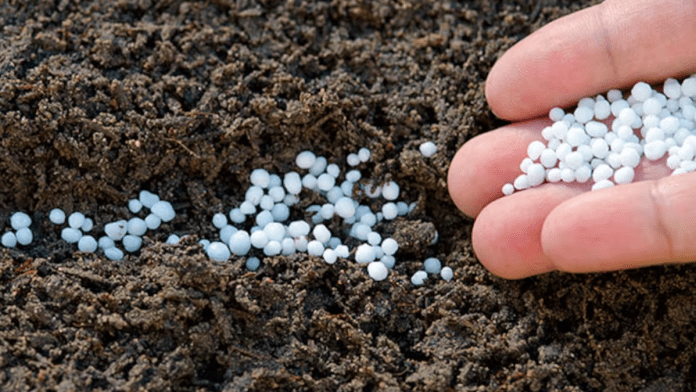News in brief: Fertiliser prices in the United Kingdom have increased in August 2023 due to higher oil and natural gas costs, global supply constraints, and reduced exports from China and EU. While prices have risen recently, they are still lower than last year’s levels.
Fertiliser prices in the United Kingdom (UK) have been on the rise in recent weeks, driven by higher oil and natural gas prices and tighter global supplies.
Imported ammonium nitrate stood at £362 per tonne in August, an increase of £18 per tonne on the previous month, according to numbers provided by Agriculture and Horticulture Development Board (AHDB). However, it is still less than half of where prices were this time last year.
Granular urea has made similar gains and was up £20 per tonne on the month to average £417 per tonne. Meanwhile, natural gas, which accounts for a high proportion of the total production cost for fertiliser, increased in August. Despite falling back slightly in early September, natural gas prices remain above July levels.
Brent crude oil prices have also increased by 25% in the past three months, adding to the pressure on fertiliser prices. Reduced export volumes of fertiliser products from China and less production in the European Union (EU) is also restricting availability.
This combination of factors is likely to keep fertiliser prices elevated in the coming months, which could have a significant impact on farmers’ profits.
Many farmers havenât used any phosphorus (P) and potassium (K) in the soil for the past two years, Josh Joachim, the fertiliser procurement manager at AF Group, told Farmers Weekly. However, they have had to start using to avoid depleting soil stocks and negatively impacting yield. Hence, there has been a an increase in P and K sales in 2023, Joachim added.
Between April and October 2022, both imported ammonium nitrate and granular urea were trading at about £700 to over £800 per tonne. The affordable rates in 2023 could encourage more farmers to return to buying fertilisers.



